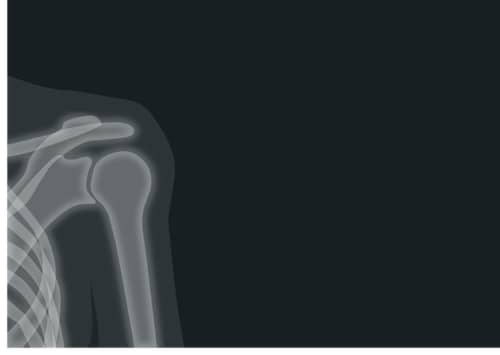Gas pains are sudden, uncomfortable sensations caused by excess air building up in the digestive tract, and learning how to relieve gas pains fast matters because the discomfort can stop you in the middle of an otherwise normal day. Think of it like pressure in an overinflated balloon—eventually, something has to give, and until it does, everything feels tight and painful. Understanding what’s really happening inside the gut makes it easier to see why some solutions work almost immediately.
When people look for ways to relieve gas pains quickly, they’re usually reacting to sharp abdominal pain or bloating that appears after eating, swallowing air, or digesting certain foods. Studies suggest that up to 20 percent of adults regularly experience significant gas-related discomfort, with triggers ranging from high-fiber diets to carbonated drinks and stress-related digestion changes. The good news is that most gas pain isn’t dangerous—it’s mechanical, predictable, and fixable.
After meals, during long periods of sitting, or when digestion slows down, trapped gas can stretch the intestines enough to create intense pressure that feels far worse than it actually is. Knowing how to respond in those moments, and which fast-acting strategies actually reduce the pressure instead of just masking it, is key to preventing repeated episodes. That’s where a closer look at effective relief methods becomes necessary.
Effectiveness of Gas Pain Remedies (Relief Percentage Based on Surveys)
This chart presents the effectiveness of different gas pain remedies based on survey data. Simethicone and peppermint tea show the highest relief percentages, while activated charcoal ranks the lowest among the surveyed methods.
1. Move Your Body
One of the quickest ways to release trapped gas is through movement. Activities like walking or stretching help stimulate digestion and encourage gas to pass. Deep breathing exercises, such as diaphragmatic breathing, can also aid in relaxing the abdominal muscles and moving gas along the digestive tract.
Quick tip: A 10–15 minute walk after meals can significantly reduce gas buildup. Adding light stretching or twisting motions can further help expel trapped gas.
2. Try a Belly Massage
A gentle abdominal massage can help move gas through the digestive tract. Use small, circular motions on your stomach, starting from the lower right side and moving clockwise. Applying essential oils like peppermint or ginger oil during the massage can enhance its effectiveness by further soothing the digestive system.
How to do it:
- Lie down and apply light pressure with your fingertips.
- Move in a circular motion along your colon’s path.
- Continue for 5–10 minutes to promote gas release.
- Use warm oil to enhance relaxation and effectiveness.
3. Sip Herbal Teas
Certain herbal teas have natural properties that help relieve bloating and gas discomfort. Sipping warm fluids also aids digestion and can help break down food more efficiently.
Best options:
- Peppermint tea – Relaxes the intestinal muscles and helps gas pass.
- Ginger tea – Reduces inflammation and speeds up digestion.
- Chamomile tea – Soothes the digestive system and relieves bloating.
- Fennel tea – Has antispasmodic properties that help release trapped gas.
4. Use Over-the-Counter Remedies
Sometimes, home remedies may not be enough, and medications can provide faster relief. Over-the-counter medications specifically target gas buildup and help break it down for easier elimination.
Effective options:
- Simethicone (Gas-X, Mylanta Gas) – Breaks up gas bubbles, making them easier to pass.
- Activated charcoal – Absorbs excess gas and toxins.
- Digestive enzymes (Beano, Lactaid) – Help break down food more efficiently.
- Antacids – Can help with gas-related bloating if linked to acid indigestion.
5. Apply Heat to Your Abdomen
A warm compress or heating pad on your stomach can relax muscles and ease gas pain. Heat helps improve blood circulation to the digestive tract, which can promote faster relief from bloating and cramping.
How to use it:
- Place a heating pad or warm towel on your abdomen for 10–15 minutes.
- Repeat as needed for relief.
- Take a warm bath for additional relaxation and muscle relief.
6. Adjust Your Diet
Certain foods contribute to excessive gas production. Avoiding or limiting these foods can prevent future gas buildup. Keeping a food diary can help identify specific triggers.
Common gas-producing foods:
- Beans and lentils
- Carbonated drinks
- Cruciferous vegetables (broccoli, cabbage, cauliflower)
- Dairy (if lactose intolerant)
- Artificial sweeteners (sorbitol, mannitol)
- High-fat or fried foods that slow digestion
7. Stay Hydrated
Drinking enough water helps prevent constipation and promotes healthy digestion, reducing gas buildup. Dehydration can slow digestion and lead to increased bloating.
Tip: Warm water with lemon in the morning can kickstart digestion. Adding a small amount of apple cider vinegar to water before meals may also aid digestion and reduce bloating.
8. Try Probiotics
Probiotics improve gut health and can reduce gas formation over time by balancing the bacteria in your digestive tract.
Best probiotic sources:
- Yogurt with live cultures
- Kefir
- Fermented foods like kimchi, sauerkraut, and miso
- Probiotic supplements
- Kombucha, which contains natural probiotics and enzymes
9. Avoid Swallowing Air
Swallowing excess air can lead to bloating and gas discomfort. This can happen through daily habits such as eating too quickly or drinking carbonated beverages.
How to reduce air intake:
- Eat slowly and chew thoroughly.
- Avoid drinking through straws.
- Reduce gum chewing and hard candies.
- Limit carbonated beverages and beer.
- Practice mindful eating to reduce excess air swallowing.
Most Common Causes of Gas Pain (Percentage of Cases)
| Cause | Percentage (%) |
|---|---|
| Dairy intolerance | 30% |
| Carbonated drinks | 20% |
| High-fiber foods | 15% |
| Artificial sweeteners | 10% |
| Swallowing air | 10% |
| Other causes | 15% |
This chart illustrates the most common causes of gas pain based on their percentage of cases. Dairy intolerance is the leading cause, followed by carbonated drinks and high-fiber foods.
Editorial Advice
Reyus Mammadli, healthcare advisor, recommends combining multiple strategies for the best results. “If you frequently suffer from gas pains, focus on dietary changes and probiotic intake while keeping over-the-counter medications as a backup. Also, incorporating simple habits like post-meal walks and abdominal massages can make a significant difference.”
Gas Pain Prevalence in the U.S. (By Gender)
This chart illustrates the prevalence of gas pain in the U.S. by gender. Women report experiencing gas pain more frequently than men, accounting for 60% of cases.
Additionally, if you experience persistent or severe gas pain, it’s important to consult a healthcare provider. Underlying conditions such as irritable bowel syndrome (IBS), small intestinal bacterial overgrowth (SIBO), or food intolerances may be contributing to your symptoms. Keeping track of your diet and symptoms can help a doctor diagnose and recommend the most effective treatment plan.
About the Author
Reyus Mammadli is the author of this health blog since 2008. With a background in medical and biotechnical devices, he has over 15 years of experience working with medical literature and expert guidelines from WHO, CDC, Mayo Clinic, and others. His goal is to present clear, accurate health information for everyday readers — not as a substitute for medical advice.







